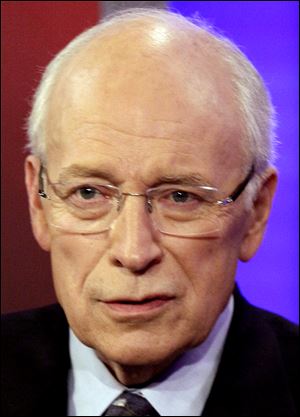
Cheney heart transplant spurs debate on youth or age as factor
3/26/2012
Cheney
CHICAGO — Doctors say it is unlikely that former Vice President Dick Cheney got special treatment when he was given a new heart at age 71 that thousands of younger people also were in line to receive.
Still, his case reopens debate about whether rules should be changed to favor youth over age in giving out scarce organs.
As it stands, time on the waiting list, medical need, and where you live determine the odds of receiving a new heart — not how many years you’ll live to make use of it.
“The ethical issues are not that he had a transplant, but who didn’t,” Dr. Eric Topol, a cardiologist at Scripps Health in La Jolla, Calif., wrote on Twitter.
Mr. Cheney received the transplant Saturday at Inova Fairfax Hospital in Falls Church, Va., the same place where he received an implanted heart pump that has kept him alive since July, 2010.
It appears he went on the transplant wait list around that time, 20 months ago.
Mr. Cheney was reportedly “doing exceedingly well” after the transplant Saturday.
“He’s doing terrific,” said Jonathan Reiner, Mr. Cheney’s longtime cardiologist at George Washington University Hospital, which does not have a transplant program.
Dr. Reiner said he saw the former vice president Sunday morning and “he joked with me. He was doing exceedingly well.”
Mr. Cheney had severe congestive heart failure and had suffered five heart attacks over the past 25 years. He has had countless procedures to keep him going — bypasses, artery-opening angioplasty, pacemakers, and surgery on his legs.
Yet he must have had a healthy liver and kidneys to qualify for a new heart, doctors said.
“We have done several patients hovering around age 70” although that’s about “the upper limit” for a transplant, said Dr. Mariell Jessup, a University of Pennsylvania heart failure specialist and American Heart Association spokesman. “The fact he waited such a long time shows he didn’t get any favors.”
More than 3,100 Americans are waiting now for a new heart, and about 330 die each year before one becomes available. When one does, doctors check to see who is a good match and in highest medical need. The heart is offered locally, then regionally, and finally nationally until a match is made.